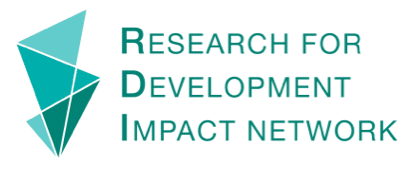What is the point of this document?
Peace Direct’s report ‘Time to Decolonise Aid’ provides an insightful critique of the development, peacekeeping, and aid sectors. Its participatory approach allows practitioners to understand the effects of reproduced hegemonic practice, through dialogue, from those who reap the challenges.
Who wrote it?
Peace Direct is an international charity that aims to support local people in war torn countries, to rebuild lives, and peace. They have collaborated with Adeso Africa, the Alliance for Peacebuilding and Women of Color Advancing Peace and Security, to produce this research report.
Who is it meant for?
This report is written for all Western (Global North) organisations across the development sector. Its discussion and inside perspective provide the necessary recommendations for such organisations to decolonise their work regardless of its’ space in the sector. It also provides an opportunity for those new to the development sector to understand key terminology in the discourse for decolonising development.
Why should I read it?
This report focuses on current practices and attitudes that have normalised racism and biased assumptions in the development sector. Without honest discussions and genuine acknowledgment, these behaviours will continue to reproduce power imbalances, inequity, and systemic injustice.
Key Takeaways:
- At the end of the day, if we do not identify actions, behaviours, and systems that cause structural racism, then racial injustice will not change. There needs to be action from Western (Global North) practitioners and donors
- There needs to be a movement away from English being the ‘right’ language used. This also goes for the use of jargon, particularly in accountability systems (reporting) that reinforce complex administrative systems. This exclusion leads to the continual silencing of local practitioners. Both of their voices and skill sets. It also reinforces the existing stereotype that locals are uneducated and lack skills.
- Another standard practice that disregards local methods and knowledge, is designing programs and research projects that are benchmarked against a Western (Global North) standard. It is not be that the local staff must alter their ways to make Global North staff feel at home, but the opposite.
- ‘Repair’ needs to replace the word ‘Aid.’ There needs to be a shift in perspective. There needs to be an acknowledgement that ‘Aid & Development’ exists solely due to a violent colonial past. If we continue to view the sector from the perspective of ‘Aid,’ then we are continuing the colonial perspective.
- Credit must be given to local participants in Western (Global North) research. Too often, local participants have their efforts diminished after completion. Meaning that all credit, soft power, and expertise go elsewhere. Ensure local participants are recognised for their work and insights, and are compensated.
Section Outlines
- Section 2 of this report identifies and explains Peace Direct’s methodology, and how they have made the conscious effort to ensure their own work does not reproduce the system that they are trying to dismantle. The introduction section also provides an excellent insight into the idea behind producing the report.
- If you are new to the sector, or simply after a refresher on decolonisation terminology, then Section 3 is perfect. Each terminology has its own explanation, as well as direct examples that provides a decolonising perspective.
- Section 6 collates suggestions from the participants in this research. Participants provide their thoughts on how funding, program development, attitudes and monitoring and evaluation can change and decolonise ‘Aid.’
Link to full report:
- Time to Decolonise Aid: Insights and lessons from a global consultation (90 min read, PDF)
- Published in 2020



